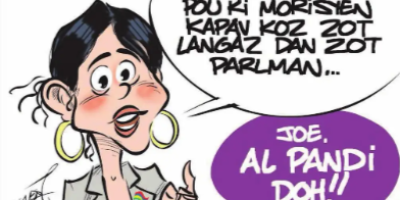As Malawi braces for a high-stakes showdown in the 2025 General Elections, the fight to protect press freedom is intensifying. With political tensions rising, concerns are mounting over journalist safety and the free flow of information—crucial pillars of a transparent electoral process.


At a Multi-Stakeholder Consultation Meeting on March 6, 2025, Commissioner Dr. Limbikani Kamlongera of the Malawi Electoral Commission (MEC) delivered a clear message: the media must be free to report without fear or censorship—but with freedom comes the responsibility to uphold truth and accuracy.
“Elections shape a nation’s future, and the media’s role in informing voters is invaluable,” Dr. Kamlongera said. “Journalists should be free to report on political developments and voter concerns without fear of persecution or censorship.”
With the elections approaching, protecting press freedom is becoming increasingly urgent. Dr. Kamlongera underlined that freedom of expression is fundamental to a functioning democracy and commended the Media Council of Malawi and UNESCO Malawi for fostering dialogue on journalist safety during election periods.
“An informed electorate depends on journalists,” he said, warning that without accurate information, the credibility of the electoral process would be severely compromised.
Despite some improvements, Malawi’s media landscape remains under pressure. Reports from Reporters Without Borders (RSF) highlight rising threats and harassment against journalists covering political affairs. In 2023, Malawi ranked 80th out of 180 countries on the RSF World Press Freedom Index—an improvement from previous years but still signaling concerns over media independence and journalist safety.
The September 16, 2025 elections are expected to be highly contested, with rising tensions between the ruling Malawi Congress Party (MCP) and opposition parties like the Democratic Progressive Party (DPP). Analysts warn that the heated political environment could increase risks for journalists investigating corruption, electoral irregularities, or voter suppression.
While advocating for press freedom, Dr. Kamlongera also warned against the dangers of misinformation and inflammatory reporting, which can fuel unrest.
“Journalists must adhere to ethical reporting standards and verify their sources,” he urged. “In other countries, reckless reporting has fueled ethnic violence and undone years of progress.”
The rise of social media has exacerbated concerns about misinformation. A 2024 study by the Malawi Communications Regulatory Authority (MACRA) found that fake news is increasingly shaping public opinion—especially in rural areas where access to traditional media is limited.
The MEC’s focus on responsible reporting reflects broader fears that unchecked misinformation could undermine the electoral process and destabilize the country.
Recognizing the dangers journalists face, Dr. Kamlongera emphasized that law enforcement and media professionals share responsibility for ensuring their safety. He advised journalists to take precautions when covering high-risk events and to work with authorities to protect themselves.
“The safety of journalists is not solely the responsibility of law enforcement; journalists themselves must exercise caution,” he said.
Journalist safety remains a major concern. During post-election protests in 2020, several journalists were assaulted or detained while covering demonstrations. The Media Institute of Southern Africa (MISA) continues to call for stronger protections and better coordination between law enforcement and media organizations.
The MEC is collaborating with security agencies to ensure a safe environment for all electoral stakeholders, including political candidates and voters. Polling stations will have enhanced security to prevent intimidation and violence.
“No citizen should fear for their safety when exercising their democratic right to vote,” Dr. Kamlongera declared. “Political parties must also ensure their supporters maintain peace. Violence has no place in our democratic society.”
The Malawi Electoral Commission reaffirmed its commitment to conducting transparent and fair elections. Dr. Kamlongera called on the media to work collaboratively with the MEC and other stakeholders to ensure accurate and impartial coverage throughout the electoral cycle.
Malawi has a history of contested elections. In 2019, the Constitutional Court annulled the presidential election due to widespread irregularities—only the second national election annulment in African history. The subsequent 2020 elections saw opposition leader Lazarus Chakwera win the presidency, marking a turning point in Malawi’s democratic journey.
With the 2025 elections on the horizon, all stakeholders face increasing pressure to ensure a peaceful and credible process.
“Together, we can safeguard press freedom, ensure electoral integrity, and strengthen our democracy,” Dr. Kamlongera concluded, officially opening the consultation meeting.
Discussions from the meeting will shape Malawi’s strategy for free and fair elections in 2025.
Follow and Subscribe Nyasa TV :
Sharing is caring!















